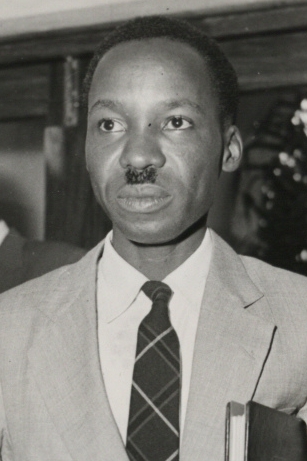Related Research Articles

Dar es Salaam is the largest city and financial hub of Tanzania. It is also the capital of the Dar es Salaam Region. With a population of over five million people, Dar es Salaam is the largest city in East Africa and the sixth-largest in Africa. Located on the Swahili coast, Dar es Salaam is an important economic center and one of the fastest-growing cities in the world.

As it is in other countries, the music in Tanzania is constantly undergoing changes, and varies by location, people, settings and occasion. The five music genres in Tanzania, as defined by BASATA are, ngoma, dansi, kwaya, and taarab, with bongo flava being added in 2001. Singeli has since the mid-2000s been an unofficial music of uswahilini, unplanned communities in Dar es Salaam, and is the newest mainstream genre since 2020.
Joseph Mbilinyi, known for his stage names Mr. II, Sugu and 2-proud, is a Tanzanian politician, human rights activist and rapper. He was a Mbeya Urban elected member of Parliament from 2010 to 2020.
Bongo Flava is a nickname for Tanzanian music. The genre developed in the 1990s, mainly as a derivative of American hip hop and traditional Tanzanian styles such as taarab and dansi. Lyrics are usually in Swahili or English.
Tanzanian Hip-hop, which is sometimes referred to Bongo Flava by many outside of Tanzania's hip hop community, encompasses a large variety of different sounds, but it is particularly known for heavy synth riffs and an incorporation of Tanzanian pop.
X Plastaz is a Tanzanian hip hop musical group based in Arusha and founded in 1996. They are one of the most popular acts in the Tanzanian hip hop scene. Their style mixes elements from international hip hop and traditional Maasai music, represented by Maasai singer Merege. While Merege sings in maa, the other members of the group rap in swahili and haya. Merege is also well known to perform in traditional Maasai clothing.

Following Tanganyika's independence (1961) and unification with Zanzibar (1964), leading to the formation of the state of Tanzania, President Julius Nyerere emphasised a need to construct a national identity for the citizens of the new country. To achieve this, Nyerere provided what has been regarded by some commentators as one of the most successful cases of ethnic repression and identity transformation in Africa.
Juma Nature is a Tanzanian Bongo Flava recording artist and record producer.
Kwanza Unit (KU) was an early Tanzanian hip hop group. Its name means "First Unit" and it was formed in 1993 by a merger of several groups and solo artists. They started rapping in English, but later used Swahili as well.

Joseph Haule, popularly known by his stage name Professor Jay, is a Tanzanian hip hop recording artist, politician and former member of the Tanzanian parliament for Mikumi constituency. He is one of the prominent representatives of the "Bongo Flava" Tanzanian hip hop subgenre, which mixes elements from both Western hip hop and the Tanzanian tradition.

Ujamaa was a socialist ideology that formed the basis of Julius Nyerere's social and economic development policies in Tanzania after it gained independence from Britain in 1961.

Dully Sykes is a Tanzanian Bongo Flava musician, songwriter, record producer and composer.
Zavara Mponjika or simply MC Rhymson is a rapper from Tanzania who was the founder of the Villain Gangsters and a founding member of Kwanza Unit.
Dataz is a Tanzanian rap artist and she is among few earliest female hip hop musicians in the country.
Radio Tanzania Dar es Salaam is a radio service in Tanzania.
Balozi Dola,a.k.a.Balozi or Dolasoul, is a self-proclaimed “socially conscious” hip hop artist from Tanzania.
The term "wahuni" is a Tanzanian slang term meaning "hooligans." Wahuni refers specifically to youth of the hip-hop generation of the 1990s in Tanzania. The use of such a negative terminology indicates the cultural hostility toward hip-hop within the nation.
The annual Yo Rap Bonanza, created in the early 1990s in Tanzania, was a rap talent show organized by Kim and the Boys with Ibony Moalim and was sponsored by local Indian merchants. The first show was made in 1993 and the second and last was in 1995. Kim and Ibony were key figure on this event. It is generally recognized as the first major hip-hop competition in Tanzania. The talent show attracted large crowds with its diverse and unique delivery of rhymes from different artists.
Ramazani "Remmy" Mtoro Ongala was a Tanzanian guitarist and singer. Ongala was born in Kindu, in what was the Belgian Congo at the time, and now is the Democratic Republic of the Congo.
The Hip-Hop Asili Festival (HAF) is an annual celebration of Hip-Hop music and culture in Tanzania. It is produced by local artists and supported by French Embassy in Tanzania.
References
- 1 2 Lemelle, Sidney J. “‘Ni wapi Tunakwenda’: Hip Hop Culture and the Children of Arusha.” In The Vinyl Ain’t Final: Hip Hop and the Globalization of Black Popular Culture, ed. by Dipannita Basu and Sidney J. Lemelle, 230-54. London; Ann Arbor, MI: Pluto Pres
- 1 2 Africanhiphop.com :: Motherland Hip hop :: African Rap :: 10 years online 1997 - 2007!